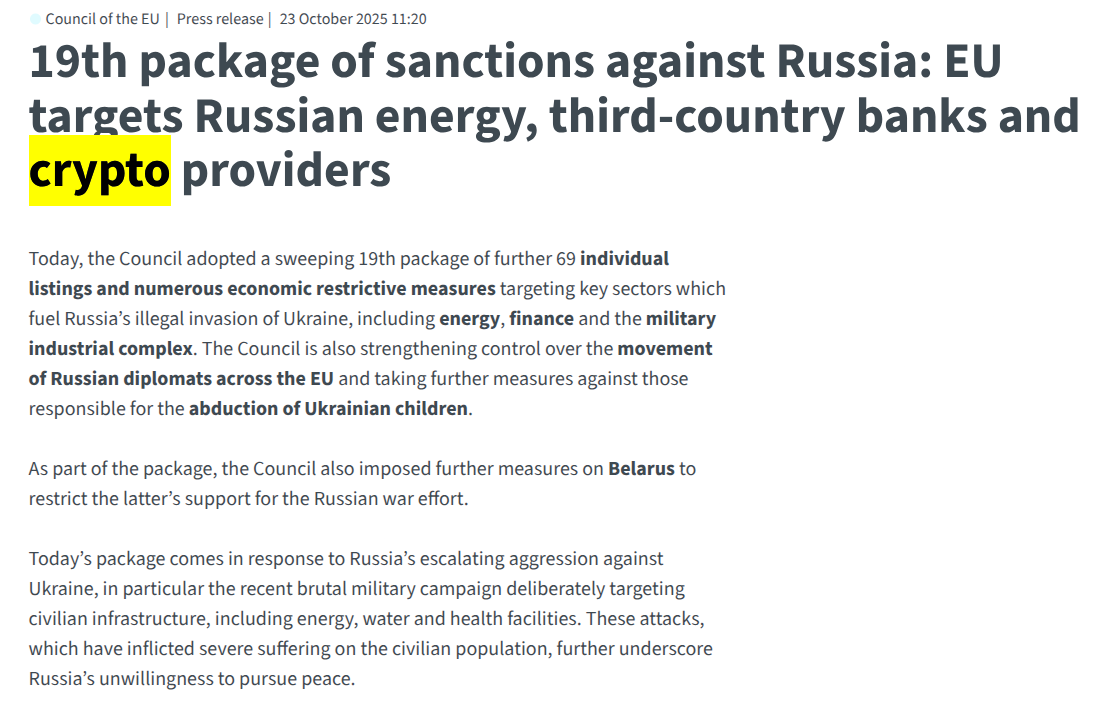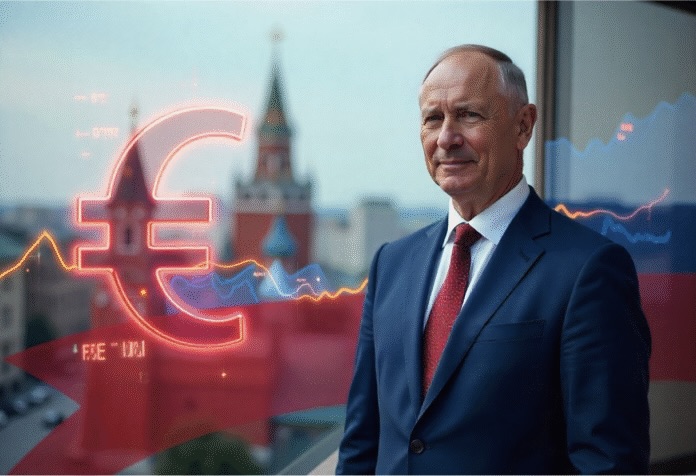EU Sanctions Russian Crypto Platforms in 19th Package
Background: EU Targets Cryptocurrency in New Sanctions
The European Union has adopted its 19th sanctions package against Russia, marking the first time digital asset platforms have been directly targeted since the start of the conflict in Ukraine. The measures, introduced on Thursday, prohibit crypto payment providers based in Russia and restrict the distribution of related payment software throughout the bloc, according to a Cointelegraph report.

The move comes as the EU seeks to counter efforts by Russia to bypass existing penalties imposed in response to its actions in Ukraine. In addition to the crypto sector, the latest package further clamps down on Russian energy companies, banks, and entities from countries such as China, Kyrgyzstan, Tajikistan, Hong Kong, and the United Arab Emirates. These entities are accused of assisting Moscow in evading prior sanctions.
Details of the Cryptocurrency Sanctions
The new sanctions include a ban on Russia-based cryptocurrency exchanges and the use of payment software that could be employed for digital transactions by Russian users. The EU specifically banned the A7A5 ruble-backed stablecoin, which authorities said was “a prominent tool for financing activities supporting the war of aggression.” This ban covers the stablecoin’s issuer in Kyrgyzstan and the operator of an exchange platform where large volumes of A7A5 have been transacted.
The European Council highlighted the increasing use of cryptocurrencies by Russia to circumvent sanctions, stating: “Recent activity has evidenced Russia’s increasing use of crypto in circumventing sanctions.”
The package also extends transaction bans to at least eight banks and oil traders from Tajikistan, Kyrgyzstan, Hong Kong, and the UAE, accused of helping Russian entities evade the EU’s earlier measures.
Market Reaction and Broader Implications
The EU has been discussing restrictions on Russian crypto operations since September 19, culminating in the full ban of the A7A5 stablecoin. Russian oil companies have reportedly transacted tens of millions of dollars monthly using crypto assets such as Bitcoin (BTC) and Tether’s USDt (USDT) to circumvent existing penalties, according to a March Reuters report.
In addition, U.S. authorities have charged two Russian citizens living in New York with facilitating payments for sanctioned Russian individuals and entities. One of the individuals, Iurii Gugnin, also known as George Goognin, faces 22 criminal counts, including allegations of laundering over $540 million via crypto firms Evita Investments and Evita Pay.
What’s Next for Russian Crypto Operators and Global Compliance
With the adoption of its 19th sanctions package, the EU is taking further steps to close loopholes that allow sanctioned entities to access global financial and crypto networks. The regulations also include tighter controls over Russian diplomatic activities to prevent destabilization. EU officials indicate that they will continue monitoring and updating sanctions as attempts to evade restrictions evolve.
Industry observers are closely watching how Russian crypto platforms and related international actors respond to the expanded penalties. The new package underscores the EU’s commitment to addressing digital assets as part of broader global compliance measures on sanctions.
Learn more about cryptocurrency regulations and sanctions in our cryptocurrency news section.
Sources
Cointelegraph
Reuters



















